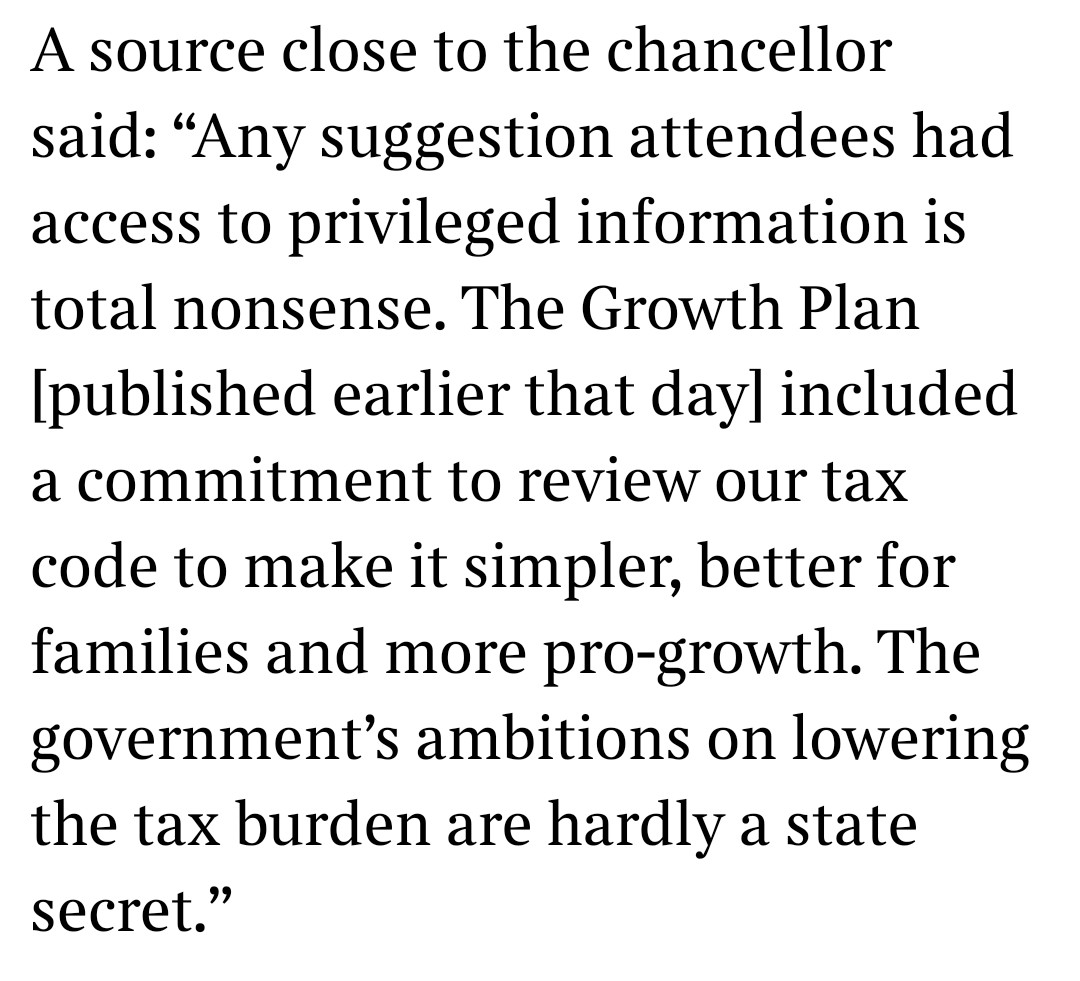One upon a time Ministers resigned if they brief details of a budget in advance. 🧵
britishpathe.com/video/mr-dalto…
More recently, the practice of leaking embargoed information to the press has become commonplace, even as senior Treasury officials have deplored it.
assets.publishing.service.gov.uk/government/upl…
And some respected commentators, like @jillongovt, have justified budget pre-releases on the grounds that "Budget purdah was supposed to protect against potentially market moving leaks of tax changes" but now "in practice very few measures" move markets.
ukandeu.ac.uk/budget-secrecy/
There are still some controls on the pre-release of budget information. The Ministerial Code, for example, says this but in practice what it says only matters if the Prime Minister cares to enforce it.

So although a Speaker in Parliament might get very cross about Parliament's role being undermined (
theguardian.com/uk-news/2021/o…
Yesterday, Kwasi Kwarteng (or his spokesperson) seems to have confirmed that he regarded himself as free to leak details of his tax plans (they "are hardly a state secret") (
thetimes.co.uk/article/fa66c3…

And he appears to have done this despite being told that the market "had not priced in cuts to either the basic rate of income tax, or an abolition of the additional rate" (
thetimes.co.uk/article/2f54ab…

And the price of Sterling duly slumped during his speech making lots of people, including those who knew in advance what was coming, very rich indeed. Reuters has described the broader environment Kwarteng has created as "the opportunity of a lifetime".
reuters.com/business/finan…

Although the Ministerial Code is, albeit only notionally, a way to control important information being given to newspapers, or your hedge fund friends, in advance of Parliament it is not the only way.
It is also a crime to deal in "securities" after receiving inside information. And, more relevantly Kwarteng, it is also a crime to disclose inside information in respect of securities.

It's not an easy crime to prove, that you acted after receiving inside information on future currency movements. There seems only to be one case: see
sciencedirect.com/science/articl…
And not all the ways you might express for profit your belief Sterling will fall involve dealing in "securities". But, and this is not my area, it might be easier to prove that inside information was *disclosed* than that dealing *resulted from the disclosure*.
And there are very real questions about whether @TheFCA would ever investigate. Certainly our regulators do not have the appearance of rigour and political independence that their US equivalents seem to.
But @GoodLawProject will take advice on what you would need to show for Kwarteng to be guilty of a criminal offence in respect of providing inside information about his tax plans, which clearly moved the market and which he seems to have regarded himself as free to share. /Ends
Interesting: The Sunday Times has now changed its story. Could it be that it came dangerously close to revealing that Kwarteng knew the information he regarded himself as being at liberty to share was insider information so it could be criminal to share it with hedgefunds?


